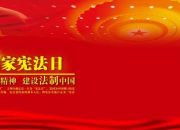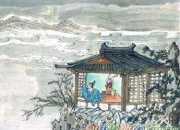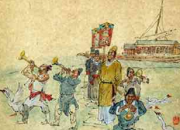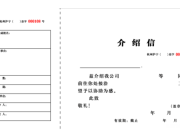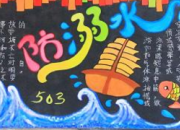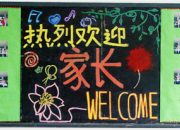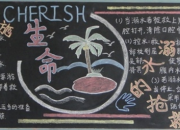英语习题精选及参考答案
时间:2021-08-31Ⅰ. 单项选择
1. The rain will ____ our plan for a picnic.
A. affect B. influence C. effect D. infect
2. ____ other good students, the teacher thinks, Hank is ____ student.
A. compared with; a most satisfied B. compared to; the most satisfied
C. comparing to; the more satisfying D. compared with; a more satisfying
3. the population of this city , forty percent of which ____, ____ 15% in the last three years.
A. are Germans; has risen B. are German; has fallen try
C. is Germans; have increased to D. is Germans; has been reduced try
4. It was about 600 years ago ___ the first clock with a face and an hour hand was made.
A. that B. until C. before D. when
5. It was 1969 ___ two Americans got to the moon by space ship.
A. which B. when C. that D. as
6. He is the only man ____ for the position.
A. likely B. possible C. probably D. possibly
7. When ____ about his plan, he said he hadn’t made any.
A. was asked B. will be C. was asking D. asking
8. If you ___ to see Kate, what would you tell him?
A. are B. will be C. must D. were
9. She asked the pupil ____ still, but they kept _____ out of class.
A. to sit; to move B. to sit ; moving C. sit ;move D. sitting ;moving
10. Religion has a great ___ people’s behavior.
A. faith in B. division into C. effect on D. protection against
11. If the idea is wrong, the project fail, ____ good the other ideas might be.
A. though B. however C. whatever D. whatever
12. My brother telephoned the airport to make ___ of the time of the plane.
A. right B. true C. sure D. real
13. Every possible test was carried ___ to decide the nature of her illness.
A. on B. of C. out D. through
14. _____ we continue to work hard, we can accomplish our task in time.
A. as far as B. in the care C. as long as D. despite
15. Sometimes my job is tiring, but ____ I quite enjoy it.
A. at random B. try and large C. in other work D. within easy reach
Ⅱ.完型填空
The output(输出) is the last step in computer operation. It changes the computer’s 1 from machine language into a form that people can 2 . There are several kinds of output devices(装置).
Suppose a shoe store owner wants to know which style of shoe is 3 best, he uses a printer, which prints or types the 4 of shoes sold on a long strep (条) of paper. The computer print-out shows him 5 shoes he should order.
A city planner, though, may use her computer in a different 6 . She wants to plan a new bus route to serve the largest number of 7 . Using a plotter (绘图仪) as the output, she gets a drawing, actually a 8 , showing the route chosen by the computer.
Students in many schools are taught by a computer. Some of these 9 are in foreign languages. To learn a language, you must 10 it spoken correctly. These computers have an audio(音响) output. They actually produce the 11 of the language perfectly pronounced.
The modern computer is truly a wonderful machine. But it is not able to think 12 itself. It is only as smart (聪明) as the person who prepares its program. Nor can a computer produce correct answers 13 it is fed correct information into. A computer is nothing more than a human 14 . Just as you use a hammer to help you drive a nail into a wall, so you use a computer to help you work out a problem. Computers are our 15 , not our masters.
1. A. questions B. results C. position D. (aeration
2. A. speak B. write C. study D. understand
3. A. fitting B. selling C. wearing D. walking
4. A. number B. kind C. factories D. colours
5. A. only B. different C. which D. those
6. A. means B. place C. time D. way
7. A. streets B. people C. stops D. drivers
8. A. map B. book C. report D. plan
9. A. lessons B. classes C. courses D. texts
10. A. have B. make C. want D. hear
11. A. sounds B. words C. speeches D. rules
12. A. of B. for C. over D. about
13. A. or B. while C. unless D. if
14. A. being B. waiters C. tool D. dream
15. A. servants B. workers C. friends D. waiters
Ⅲ. 阅读理解
A
New Zealand is an English-speaking country. But the government recognizes another language, too. This is the Maori language. English sailors began to visit New Zealand after 1770. They found a dark-skinned people living there. These were the Maori. They had come from islands in the Pacific Ocean 400 years before -in the 14th century.
For a long time the British government was not very interested in there far away islands. It was made a British colony(殖民地) in 1840. In this year the first British people came to settle in the new country. More and more settlers came from Britain later.
The Maoris were friendly to the first settlers. But soon the new settlers wanted the Maoris 'land. So in 1844 there was fighting between them. This was the first of several wars between the two people. The next 50 years were very bad for Maoris. Many were killed in the wars. Many more died from the new diseases brought by the British. In 1840 there were perhaps 200 000 Maoris. By 1896 this number had fallen to 42 000.
By this century the two people have lived in peace. For many years the “British” New Zealanders looked down on the Maoris. But in recent years they have had equal rights, and the Maori language is one of the languages of the country with English. Today there are about a quarter of a million Maoris, that is, about 9% of the population. Most of them live on North Island. They have a rich culture and a great love of singing and dancing.
1. The Maoris began to live in New Zealand ________.
A. after 1770 B. before 400 C. in the 1300s D. 1 400 years ago
2. After the first visit to New Zealand, the British government showed little interest in it because ________.
A. there were dark-skinned people living there
B. New Zealand was an island country
C. the Maoris did not know the English language
D. it was too far away from Britain
3. When the British settlers first came to New Zealand, the native people________.
A. were afraid of them B. were kind to them
C. hated them D. fought against them
4. Wars between the Maoris and the British settlers _______
A. broke out in 1840
B. made 42 000 Maoris lost their lives
C. brought diseases to Maoris
D. lasted more than fifty years
5. Which of the following is NOT mentioned in the passage?
A. After the war New Zealand became a British colony.
B. Maoris can speak both English and Maoris language.
C. About 250 000 Maoris are now living in New Zealand.
D. Maoris are allowed to keep their own language.


